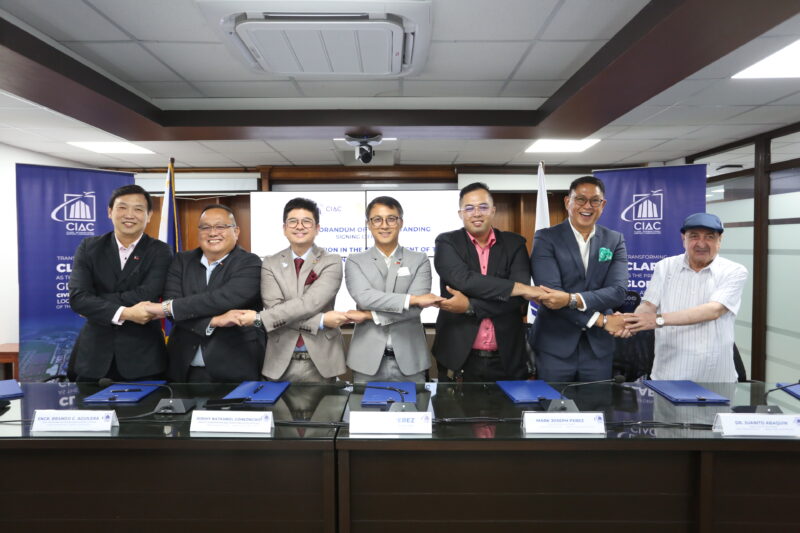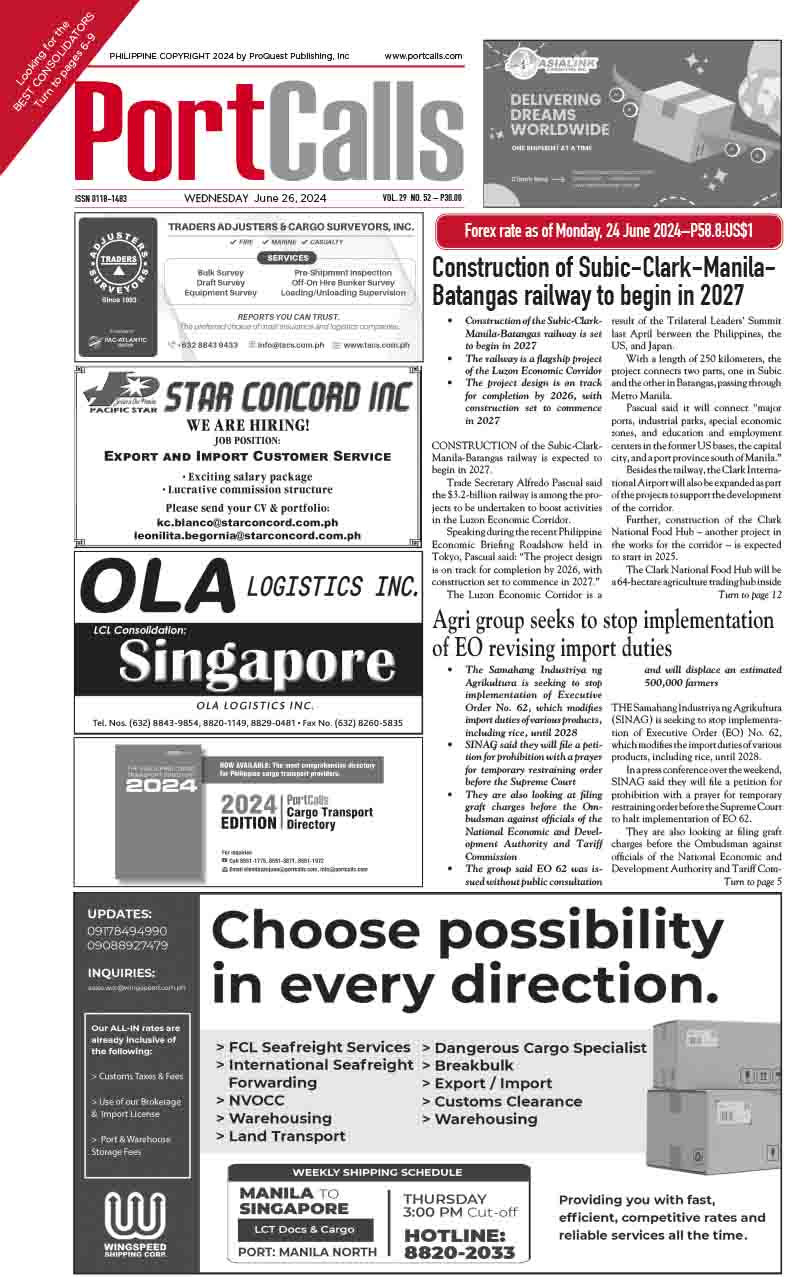-
Clark International Airport Corp signed an MOU with global food tech companies Food Starter Philippines and World Food Chain Pte. Ltd. for possible collaboration on the Clark National Food Hub project
-
The MOU aims to explore areas of collaboration relating to trade and transport, investment, warehousing and storage infrastructure development, and trade visits to strategic logistics hubs within ASEAN and Dubai
-
The P8.5-billion 62-hectare Clark National Food Hub project is set on replicating state-of-the-art agro-logistics system of food hubs in advanced Asian countries
Clark International Airport Corp (CIAC) recently signed a memorandum of understanding with global food tech companies Food Starter Philippines and World Food Chain Pte. Ltd. for possible collaboration on the Clark National Food Hub project.
The MOU, signed on June 19, aims to explore areas of collaboration relating to the food hub project, including trade and transport, investment, warehousing and storage infrastructure development, and trade visits to strategic logistics hubs within Association of Southeast Asian Nations and Dubai.
Food Starter Philippines, a subsidiary of the Singapore-based Food Starter Pte. Ltd., and World Food Chain are global sourcing and technology resource firms in the field of food procurement and operations dealing with global agricultural financing and investments.
“This most recent MOU advances our efforts to start developing a food hub ecosystem aggregator which will ensure sustainable food security solutions,” CIAC president Arrey Perez said in a statement.
“The partnership is the right move at the right time, as it guarantees a modernization of the national food hub, and that we’ll be able to address key challenges in its operation, maintenance and sustainability,” Perez added.
Perez said the P8.5-billion 62-hectare Clark National Food Hub project is set on replicating state-of-the- art agro-logistics system of food hubs in advanced Asian countries, raise the standards of food safety and provide better opportunities for the local farmers, fisherfolk, and growers.
READ: $152M mega food hub to rise in Clark City
Early this year, CIAC secured the National Economic Development Authority nod for the project’s inclusion in the Public Investment Program for 2023 to 2028, along with the approval for its Project Development and Monitoring Facility application for project preparation and transaction advisory support with the Public Private Partnership Center.
The food hub project actualizes the first strategy under the Department of Trade and Industry’s three-year food logistics action agenda, which is to revolutionize the food distribution network in the country from farm to fork.
READ: DTI’s 3-year food logistics agenda approved
The three-year food logistics action agenda, approved by President Ferdinand Marcos, Jr. in August last year, is aimed at transforming the country’s food distribution system, reducing transport and logistics costs, and ensuring food supply chain efficiency.
The first of the six strategies seeks to establish food hubs outside of Metro Manila as aggregation points for fresh farm produce.
The Clark National Food Hub will be an agriculture trading hub inside the Clark Civil Aviation Complex—operated by CIAC—that will support the national government’s vision to make the Philippines a leading agricultural resource hub in the region and the world.
It will provide a comprehensive range of services such as food warehousing, cold storage, processing, marketing and trading for both local and international markets which are all governed by rigorous research and quality control.
Last February, CIAC, DTI, and Department of Agriculture signed an MOU to collaborate in the development of a mega food hub.









